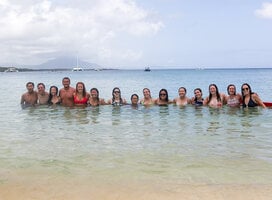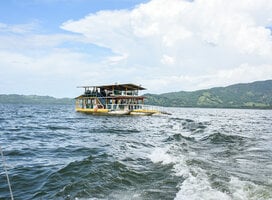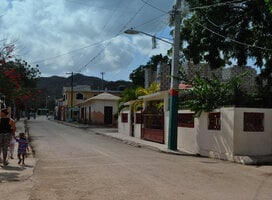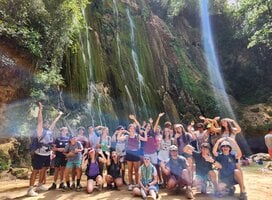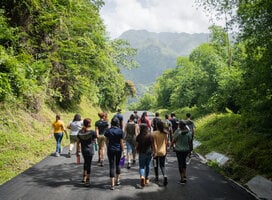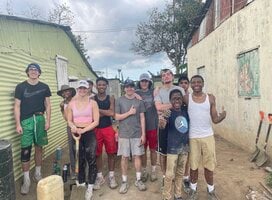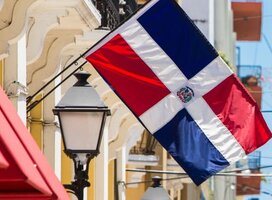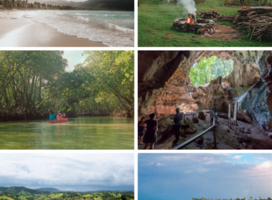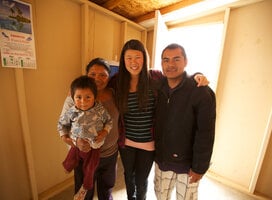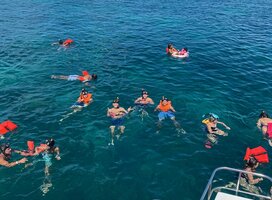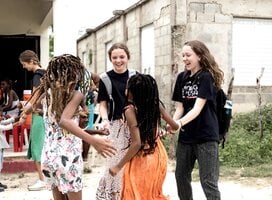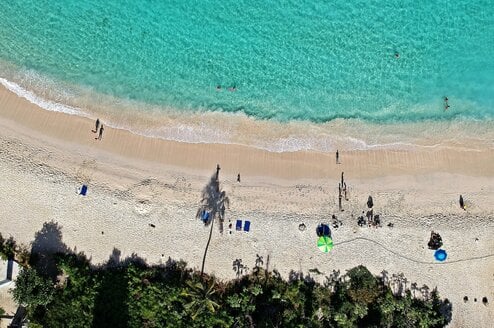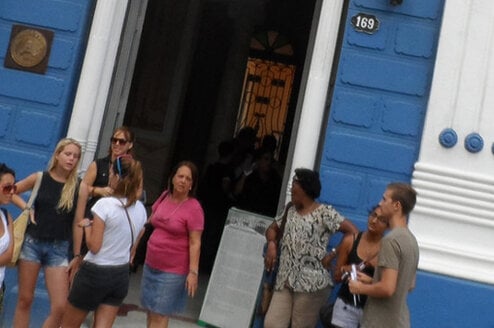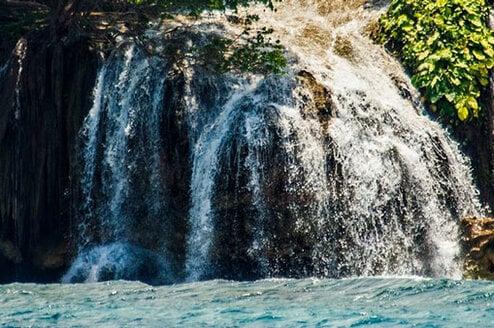High School Abroad in the Dominican Republic
Often referred to as paradise, the Dominican Republic is known for its lush plant life, beautiful beaches, and laid-back lifestyle, making it a wonderful high school abroad destination.
Most high school abroad programs in the Dominican Republic will focus either on volunteering or teen travel abroad. Spanish immersion is a popular program type here as well.
Whether you're volunteering with public health or environmental initiatives, working on a construction project, teaching English to children, or interning for a local NGO, you'll see first hand how your efforts make a difference in local communities.
The Dominican Republic is great for students who want to practice their Spanish language skills or volunteer in a hands-on setting while getting the chance to explore Caribbean culture.
High school abroad programs in the Dominican Republic will usually focus on one of the following:
- Teen travel
- Volunteering
- Spanish immersion
Teen travel programs
Learn about the Dominican Republic while traveling around the country. It's likely that teen travel tours in the DR will also include a service-learning / volunteer component and expose students to issues like sustainable development or healthcare in developing countries.
Spanish immersion programs
Improve your Spanish by fully immersing yourself in a Spanish language program in the Dominican Republic. These programs include intensive, daily Spanish classes and a homestay with a local family.
Volunteer programs
If you're interested in spending part of high school abroad in the Dominican Republic, you can choose from the following types of volunteer opportunities over spring break, summer vacation, or while on a gap year:
- Environmental sustainability
- Public health
- Teaching english
- Construction projects
Environmental Sustainability: Work with NGOs to add solar panels to different buildings, spend a few weeks working on ecological restorative projects, or help preserve dolphin and turtle populations.
Public Health: Install clean stoves and water filters in people's homes, while getting to know the ins and outs of a small remote village in the DR.
Teaching English: Volunteer 20-40 hours a week at a local school or summer camp while teaching children English. Not only will they see you as a teacher, but they'll also view you as a role model.
Construction Projects: Help to lay down cement blocks to build homes, schools, and other important buildings in Dominican communities, called bateyes.
Not convinced that the Dominican Republic is the place to be? Buzzfeed has 17 Reasons You Should Skip the Resort and Visit the Real Dominican Republic.
Visas
Students and travelers may enter the Dominican Republic for up to 60 days without the need to obtain a visa. It is recommended that everyone brings their passport, as re-entry to the United States may be difficult without it.
Travelers that plan to spend more than 60 days in the DR must purchase a Tourist Card, which according to the Department of State only costs $10, and can be purchased at the Embassy of the Dominican Republic in Washington, D.C., any DR consulate, or at the airport.
Housing
Housing depends on the program provider, but students have quite a few options including, guest houses, home-stays, volunteer houses, or apartments. The program provider will offer students assistance in planning housing logistics for the duration of their program.
Costs
Each program provider charges a different price, but generally volunteer programs that last between one week to three months range from $1,799 - $5,350. Longer term programs that can last for a gap year cost around $500 a month, not including food.
The official currency in the DR is the Peso (RD$), and $1 USD is equivalent to 45.77 (RD$). While ATMs are common, most charge a $2 fee to withdraw money, and many ATMs will only let you withdraw small amounts. A meal at a local comedor costs about $4.75, and an expensive meal at a fancy restaurant can cost closer to $21. Students should also be aware that most restaurants include a 28% service fee and tax on the bill.
Packing Tips
Because of its tropical weather, we recommend that students pack the following for their time abroad in the Dominican Republic:
- Bathing suit
- Flip flips
- Sneakers
- Shorts and shirts that mix and match well
- A light jacket
- A pair of long pants
- Sunblock
Vaccinations
Travelers must be vaccinated for, Hepatitis A and B, Influenza, Typhoid, Tuberculosis, Cholera, and Rabies before entering the Dominican Republic.
Safety
The Dominican Republic is a fairly safe country, but like most places around the world, students should be aware of their surroundings and always keep their debit and credit cards in a safe place in case of pick-pocketing.
Because of its tropical weather, the DR experiences hurricanes between June and November, but on-site staff are there to ensure the safety of all students.
